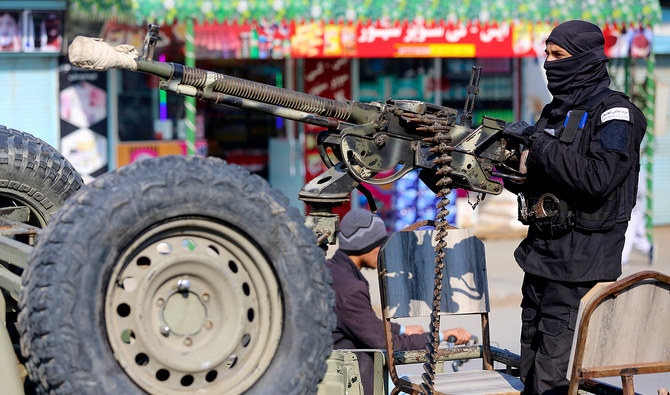KABUL: Afghanistan’s foreign ministry on Saturday denied Iranian allegations about the transfer of Daesh fighters to the landlocked country from Iraq, Syria and Libya, warning Tehran against raising “false alarms” with regard to Afghanistan.
The statement came a day after the Iranian foreign minister, Amir Hossein Abdollahian, said the shifting of Daesh leaders and fighters of Daesh, or the so-called Islamic State (IS), had become one of the main challenges of the interim Afghan government. He raised concerns that any instability in Afghanistan would directly affect the border region between the two countries.
Abdul Qahar Balkhi, a spokesman for the Afghan foreign ministry, rejected the Iranian foreign minister’s allegation and said Afghanistan’s Taliban authorities had meticulously fought against Daesh both during and after the end of Afghanistan’s “occupation” by the United States-led forces.
BACKGROUND
• The statement came a day after the Iranian foreign minister said the shifting of Daesh leaders and fighters had become one of the main challenges of the Afghan government.
• He also raised concerns that any instability in Afghanistan would directly affect the border region between the two countries.
“If Iran has any intelligence about the Daesh members moving to Afghanistan, we hope that it will share the same so that Afghan security forces can take necessary actions,” Balkhi said in a string of tweets.
“Iranian officials should rather focus on constructive economic, political and social relations between the two neighboring and friendly peoples and countries instead of raising false alarms about Afghanistan.”
Afghanistan would not allow anyone to threaten its national security or use its territory against any state, he reaffirmed.
In his comments, the Iranian foreign minister also voiced concerns about the entry of Afghan refugees into Iran. The comments came months after two Iranian border guards and a Taliban fighter were killed in a shooting near a border post on May 23, which further escalated tensions between the two countries already engaged in a dispute over water rights.
Reached for comment, Suhail Shaheen, who heads the Taliban’s political office in Doha, said the threat of Daesh had been greatly reduced in Afghanistan and group did not have “earthly presence” in the country.
“We also carried out major operations on them,” he told Arab News over the phone. “These talks are being done to create concern, if there are Daesh, then they (Iranian officials) should provide proof of their existence.”
He said the interim Afghan government was busy with the reconstruction of the war-torn country, which was being flocked by “thousands of tourists from different countries.”
“Their safety is our priority... these tourists assure the rest of the world about the peace of our country,” Shaheen said, adding that creating such nuisance was against the “principles of neighborliness.”
“If there is such a thing, they should provide us with evidence through political channels so that we can take serious steps about it and eliminate them.”



























